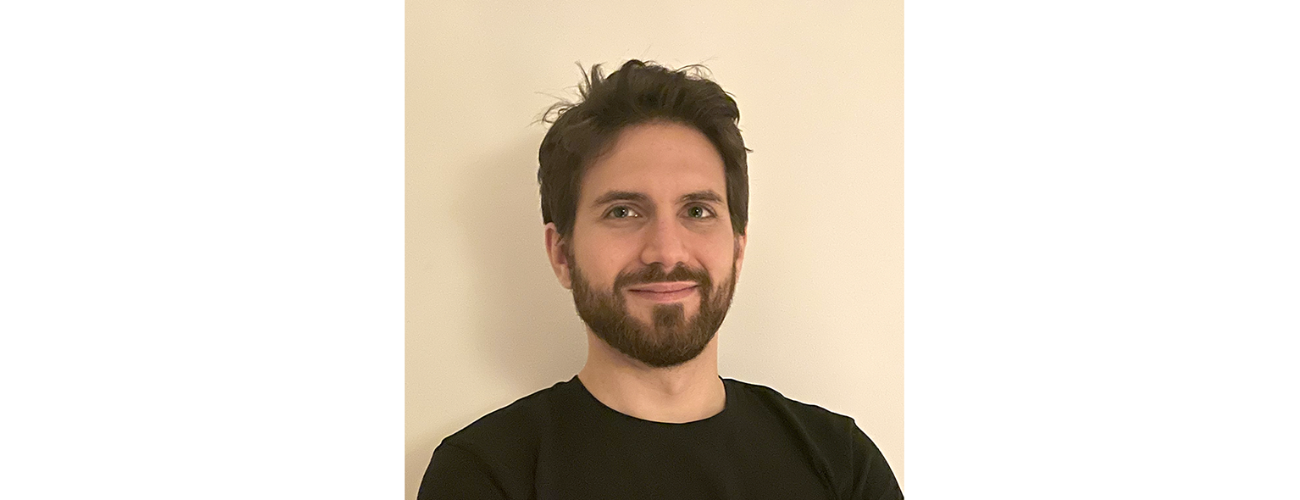Pierre MONNIN, 2015 graduate of TELECOM Nancy, receives the EGC 2022 prize for the best thesis
Pierre Monnin, major of the 2015 promotion of TELECOM Nancy, received the prize for the best thesis in the field of Knowledge Extraction and Management during the French-speaking conference EGC 2022 which was held in Blois from 24 to 28 January 2022.

The Extraction and Knowledge Management (EGC) conference is an annual event bringing together researchers and practitioners from disciplines in the data and knowledge sciences.
This is a very nice recognition for the work carried out by Pierre Monnin as part of his thesis entitled “Matching and mining in the knowledge graphs of the web of data: applications in pharmacogenomics” and carried out within the LORIA laboratory – University of Lorraine in the “Orpailleur” team, as part of the PractiKPharma project funded by the National Research Agency (ANR).
After graduating from the class of 2015 of TELECOM Nancy in the “Software Engineering” specialty, Pierre wanted to move towards research and continued with a thesis at LORIA. Currently a researcher at Orange in Belfort, Pierre Monnin agreed to answer our questions.
Hello Pierre Monnin, congratulations on your prize for the best EGC 2022 thesis! Can you tell us more about this price?
Thank you ! I am delighted to share this recognition with the TELECOM Nancy community. This thesis prize is awarded each year during the EGC conference after study by the office and the steering committee of the EGC association of the files sent by the candidates. Each candidate must provide their thesis manuscript, defense and pre-defence reports, their two best publications, and their CV with their list of publications. After obtaining good defense and pre-defense reports and discussing them with my thesis supervisors, I decided to apply.
In addition to recognition of the quality of work that can be highlighted on a CV, the winner of the prize is invited to present their work during the conference, which increases their visibility with the French-speaking knowledge extraction and management community . This can therefore promote the reuse of work by other researchers or new collaborations.
What topics did you work on for your thesis?
I worked on the problems of matching and mining in the knowledge graphs of the Web of data. Matching aims to identify equivalent, more specific or similar units of knowledge within and between knowledge graphs. This task is crucial because parallel publishing and editing can lead to co-existing and complementary knowledge graphs. Excavation, on the other hand, enables the discovery of new knowledge.
My work has been applied to the field of pharmacogenomics, which studies the impact of patients’ genetic factors on their response to drugs . Pharmacogenomics knowledge comes from different sources (specialized databases such as PharmGKB, biomedical literature, electronic patient records). It is therefore interesting to extract this knowledge and match it to provide a consolidated view of domain knowledge. This view can then be searched to uncover new insights like explanations for side effects.
As part of my work, I built PGxLOD, a knowledge graph integrating pharmacogenomic knowledge from different sources. I proposed 2 alignment methods: a symbolic method based on rules, and a sub-symbolic method based on convolutional networks of graphs. Regarding mining issues, I was interested in the scalability of path mining and path patterns in knowledge graphs. These pathways and patterns were then used in an explainable AI approach to study the mechanisms of certain drug side effects. I also proposed a method for improving knowledge graphs based on Formal Concept Analysis .
What was your career path after obtaining your engineering degree?
After obtaining my engineering degree, I worked 9 months on a permanent contract at Swiss AviationSoftware , the company in which I had completed my end-of-study internship. At the same time, I continued to work with Adrien Coulet, teacher-researcher at TELECOM Nancy, on the extension and promotion of work carried out as part of the SBC (Knowledge-Based Systems) module project taught at school. . This work notably involved data from knowledge graphs of the Web of data. During this first collaboration, he introduced me to the PractiKPharma project and the proposed thesis offer.
Why did you choose to pursue research?
Working with Adrien Coulet gave me a first experience of research. At the same time, my end-of-study internship allowed me to work on a complex and ambitious project, which required combining several skills acquired at TELECOM Nancy (development, compilation of languages for example).
These two combined and concomitant experiences made me realize that I wanted a dynamic job that allowed me to be constantly confronted with demanding scientific challenges without trivial solutions. This motivated me to apply for a thesis and then to continue a career as a researcher , combining scientific innovation with theoretical and experimental work, oral and written communications in French and English, and collaboration with researchers from different countries.
What is your current role at Orange and in what areas do you work?
After my thesis, I joined Orange as a researcher . My current work is always related to knowledge graphs and to the problems of extraction, matching and mining, but applied to the management of datasets from various domains. I therefore continue scientific research while discovering industrial transfer issues.
Would you recommend this “research” course to future TELECOM Nancy graduates?
From my point of view, this “research” course is a real opportunity for future graduates who would like to deepen their scientific knowledge and work on complex and innovative issues. Moreover, from a human point of view, this course is particularly enriching because naturally associated with an international experience (collaborations, conferences, publications) and a great diversity of activities (reading of scientific articles, theoretical and experimental work, communications oral or written in French or English for example).
More information :
- Pierre Monnin’s thesis: http://www.theses.fr/2020LORR0212
- The ANR PractiKPharma project: http://practikpharma.loria.fr
- The Orpailleur team: https://orpailleur.loria.fr


